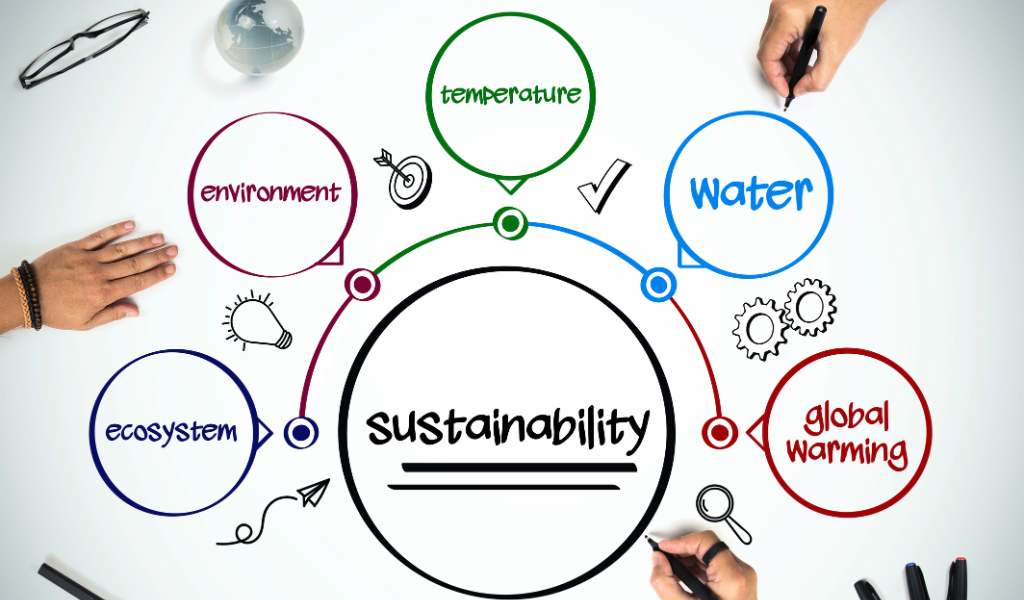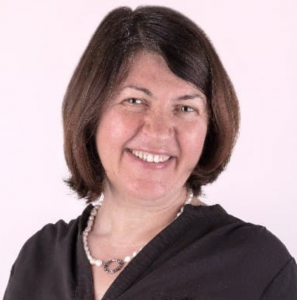In this article June O’Sullivan shares her thoughts on sustainability in Early Years and what you can do to contribute to and drive this in your early years practice.
In April 2022, the Department for Education (DfE) published the Sustainability and Climate Change Strategy for the education and children’s services systems. I got invited to the launch in the National History Museum. Anyone who has ever watched “Museums” will know they are very exciting at night. I also remember the night because I was hobbling on what turned out to be a broken ankle!
The DfE plan was ambitious and set out a target for the United Kingdom to be the world leading education sector in sustainability and climate change by 2030. Their ambitions for the four main objectives included:

I was very interested in the strategy as I had already developed the LEYF Sustainability Strategy focusing on pedagogy, governance and operations with the support of many people across the organisation. It was a response to our concern that as an EYEC organisation we have a duty to tread lightly on the planet and leave the world in a better place than we found it. I therefore wanted to make sure we aligned with the DfE and be part of the plan impact to support the 16 million children who are in education to become sustainability informed along with their teachers.
Two areas of the strategy were of interest to me. The first was the National Education Nature Park digital hub with curriculum aligned teaching resources, digital mapping tools and community science tool kits which were delivered by the Natural History Museum and partners including Support officers, employed by the Royal Horticultural Society. The intention was to engage children with the natural world, including directly involving them in measuring and improving biodiversity in their nursery and therefore helping reinforce their connection with nature. Attached to this were some interesting grants including the availability of a £15m fund to support SEND and participation in disadvantaged schools located in areas of depleted nature (educationnaturepark.org.uk).
The second focus was for every setting to have a climate action plan. We have done some preparation work on this and currently pulling together a guide to help the sector.

Therefore, in preparation for the webinar for Kinderly I checked the recently updated progress report published on the DfE website as I wanted to be sure that Early Years was included. I also wrote to the senior DfE sustainability lead and I’m sharing her responses to my three questions which are as follows:
Response
“I want to assure you that the update does pertain to EYs, if we don’t mention them separately, when we talk about education settings, we don’t just mean schools. We recognise the importance of this critical foundation stage in engaging children with nature and understanding the world around them.
Response
“EYs are already included in scope of the Nature Park with resources and activity aimed at all phases from EY to FE. In testing the materials ahead of go-live, around 15 of the 40 pathfinder sites were Early Years settings. Also, you may already be aware of Learning through Landscapes, they are one of the Nature Park partners and are key in linking the programme with Early Years.”
Response
“The support service for climate action plans will commence in the spring and will also be aimed at EY to FE. We are finalising the commercial processes and are beginning to work with the providers to develop the service”.
So, the call to action is to put Sustainability on your agenda for 2024. Check out the Nature Park and if you are stuck, join our LEYF Community of Practice (contact me directly or through Linkedin) where we will be bringing people together to discuss sustainability in practice. As ever, success depends on us working together and build partnerships to help develop sustainability informed staff and foster innovation locally and nationally.

June O’Sullivan is CEO and creator of the UK’s leading childcare social enterprise, London Early Years Foundation. June remains a tireless campaigner, looking for new ways to influence policy and make society a better place for all children and families.
June developed the LEYF Pedagogy and champions community-based, multi-generational early years education as the basis for greater social and cultural capital to deliver long-term social impact. She continues to advise Governments as well as a range of organisations, academics and services at home and overseas about how best to implement a social enterprise vision for Early Years.
June was awarded an MBE in the Queen’s Birthday honours in 2013 for her services to London’s children, and on the 29th September 2023 it was announced that June had been awarded an OBE by His Majesty the King for her services to Education.